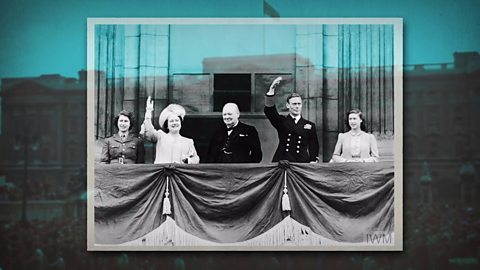Narrator: In 1940, Germany had taken over Western Europe by force. Capturing France, Belgium and the Netherlands.
To fight back and free these countries, the armies of Britain, America and Canada joined together in the largest military operation on sea, air and land ever attempted.
This operation would become known as D-Day. On June sixth 1944, thousands and thousands of American, British and Canadian troops landed on the beaches. Supported by aeroplanes and ships, they managed to take control of all five of the beaches they had targeted. This was made easier because in the weeks ahead of the attack the Allies had tricked Germany into thinking they would invade a different part of the French coast. When the Allies arrived in Normandy, the Germans were unprepared.
D-Day was a huge turning point in the war. Beforehand, the allied troops had no access to Western Europe. But after this victory, they had a way to send troops to fight back against the Germans and start to free countries like France and Belgium, who had been taken over by the Nazis.
At the time, the Nazis were also locked in desperate fighting on the Eastern Front against the Soviet Union, what is today Russia and the countries around it in Eastern Europe. After D-Day, the Nazis had to split their armies between two fronts, the Eastern Front against the Soviet Union and the Western Front against the other allies.
This weakened their forces and sped up the end of the war.
Peter recalls hearing about the success of the D-Day invasions.
Peter: I was seven and a half and my brother was six and a half, but I remember it because we were playing in the garden and my mother called me and my brother in. It was the most peculiar situation because I had never seen my mother cry and there were tears rolling down her cheeks, and it wasn't proper crying but there were tears there and I wondered what on earth was going on. But she put her arm around me and I was on that side, like that she put her arm around my brother and she said, 'I want you to remember this day for the rest of your lives.' I subsequently discovered why, because she explained that she had just heard on the radio, or the wireless as it was, that the Allies had landed in France and she believed like many people, it was the beginning of the end.
Narrator: Did you know? The military code name for D-Day was Operation Neptune, which was part of the bigger Operation Overlord.
D-Day is actually a general term for the start date of any military operation. The D stands for day. It is often used when the exact start date is either secret or not yet known.
That means there were lots of D-Days during the war but this one became the most important. Representing the moment the Allies managed to get back part of Western Europe for the first time since it had been captured by the Germans.
However, while D-Day was a key moment in the war and a high point for the Allies, the situation in Europe was still dire. Many countries were still under Nazi rule and millions of Jewish people had already been persecuted.
The success at D-Day and the possible end of the war could not come soon enough.
Video summary
This short film explores the significance of D-Day as well as highlighting what took place that day.
An eye-witness called Peter tells us about hearing about the success of D-Day. This story of a young child’s experience of the war may be particularly interesting to young pupils, and should help them relate to the material.
The ‘Did You Know’ section explains how D-Day is actually a general term for the start date of any military operation.
Created in partnership with Imperial War Museums.
Ã˝
91»»±¨ News: Communique Number One, 91»»±¨ 91»»±¨ and Forces Programme, Tuesday 6 June 1944, 12:00
Teacher Notes
This short film could inspire the following lesson in English:
- Your pupils could write from different points of view – for example, as a civilian hearing about the turning point in the war, and what it means for them.
Additional fact for the class:
- The Allies wanted to land at low-tide as this would expose the beach mines and traps the Germans had placed. In order to do this, mathematician turned oceanographer, Arthur Thomas Doodson developed complex models and tide-tables that revealed the ideal time and date for the invasion to take place. His calculations determined that 5 -7 June would have the best tide and moon conditions, which is why D-Day took place on 6 June 1944.
Ã˝
This short film will be relevant for teaching history.
This topic appears in KS2 in England and Northern Ireland, Foundation Phase and KS2 in Wales and Second Level in Scotland.
War Report, 91»»±¨ 91»»±¨ and Forces Programme, Tuesday 6 June 1944, from 21:00. Image: John Snagge on air.
More from World War Two:
Britain declares war on Germany. video
This short film offers an overview of the events that led to Britain declaring war on Germany in 1939.
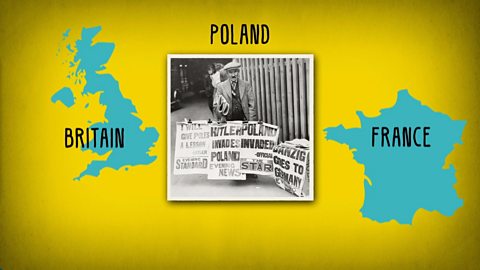
Rationing in the UK. video
This short film explains rationing in simple terms, offering a glimpse of a world that pupils may not be accustomed to.
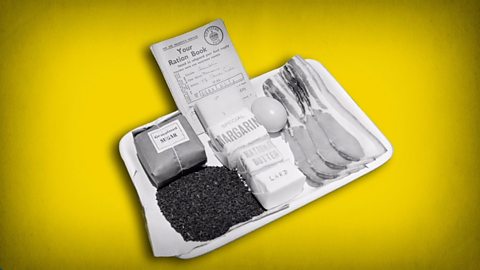
Geography of World War Two. video
This short film provides insight into the scope of the war and how many countries were involved.
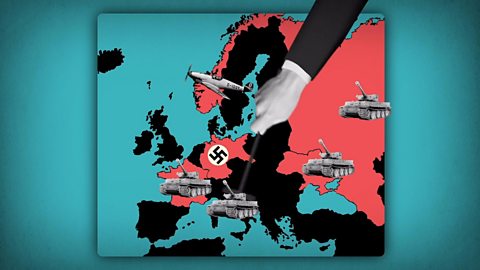
How propaganda was used during World War Two. video
This short film explains how people were persuaded to join the war effort, and the importance of motivational campaigns.
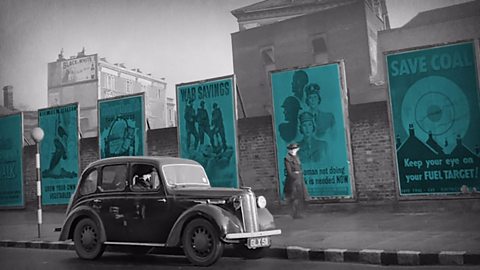
The Blitz. video
This short film offers a digestible insight into the blitz and how the British people responded.
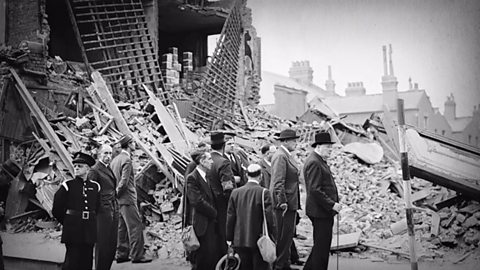
The Battle of Britain and beyond. video
This short film explains what the Battle of Britain was, who was involved and how radar was used throughout the battle.
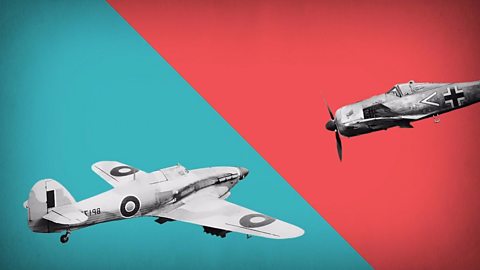
Machines of the military. video
This short film highlights the importance of technology in the war effort and the key roles that tanks, planes and ships played.
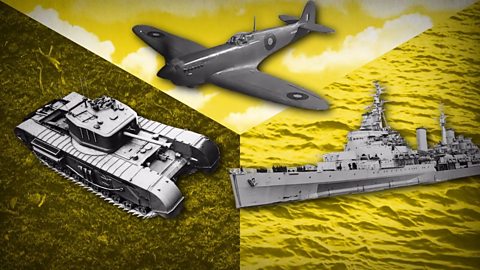
Codebreaking during World War Two. video
This short film explains how cracking Nazi Germany's coded messages helped win World War Two.
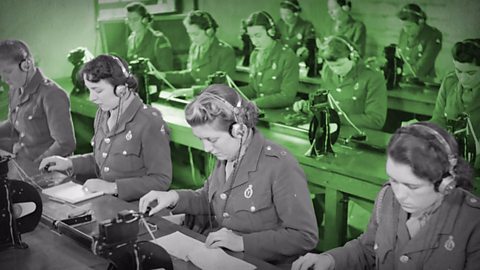
VE Day. video
This short film explains what VE Day and VJ Day were, and the events that led to the end of the war.
